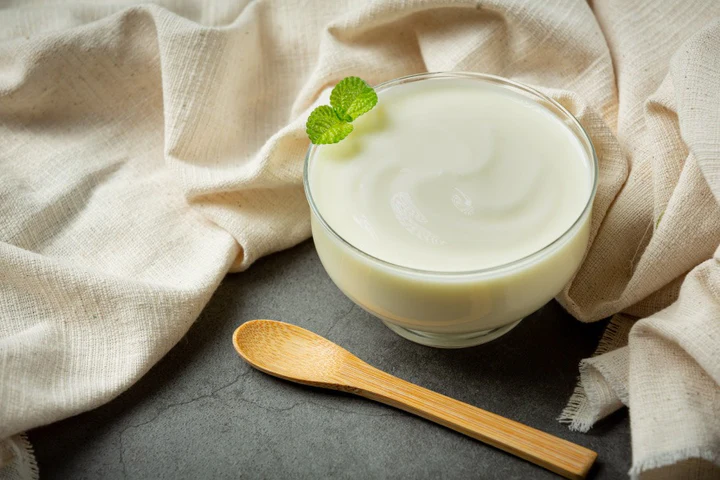In nutrition and well-being, few foods like curd, known as yoghurt, have stood the test of time. With its origins rooted in ancient Indian civilisation, curd has tantalised taste buds and emerged as a nutritional powerhouse. As we delve into the health benefits of this dairy delight, it’s crucial to recognise the significance of holistic well-being, intertwining dietary choices with safeguarding our health through avenues like health insurance and family mediclaim policies.
Advantages Of Curd
- Helps In Digestion
Curd boasts probiotics like Lactobacillus and Bifidobacterium, fostering a healthy gut flora for enhanced digestion and reduced gastrointestinal issues. A balanced digestive system is essential for efficient nutrient absorption and waste elimination.
Strengthens Immunity
Live cultures in yoghurt combat illness-causing bacteria, fortifying the digestive tract and enhancing the immune system. The nutrients in curd contribute to building a robust defence mechanism, making the body less susceptible to infections and illnesses.
Weight Management
Curd, with its high protein content, aids weight loss by inducing a feeling of fullness, reducing the temptation for unhealthy snacks. Its protein and probiotic content may also boost metabolism and promote fat loss.
Good For Skin Health
Curd’s nutritional profile, including calcium, zinc, and vitamin C, benefits the skin from within, addressing underlying causes of damage. Applying curd topically acts as a cooling agent, alleviating skin issues caused by heat, evening out skin tone, and reducing the likelihood of acne or pimples.
Good Hair Health
Curd improves hair quality by addressing common issues like dryness and dandruff. It reduces hair loss by minimising dandruff, locks in moisture, and stimulates the scalp to produce more oil, ensuring healthier hair.
Side Effects Of Curd
Lactose Intolerance
Curd contains lactose, which can be challenging for some individuals to digest, leading to digestive symptoms such as bloating and diarrhoea. However, curd is often more digestible than milk for lactose-intolerant individuals.
Weight Gain
Excessive consumption of curd, especially full-fat or sweetened varieties, may contribute to weight gain due to its calorie content. Moderation, particularly for those aiming for weight loss, is advisable.
Cholesterol Concerns
Full-fat curd may contain saturated fats that can elevate cholesterol levels and increase the risk of heart disease. Opting for low-fat varieties can mitigate this risk.
Medication Interference
Curd’s calcium and mineral content may interact with certain medications, particularly antibiotics and some thyroid treatments. Consultation with a healthcare professional is recommended before incorporating curd into the diet.
The advantages of incorporating curd into our diets become evident in pursuing a healthier lifestyle. However, it’s equally vital to fortify our well-being with comprehensive health insurance plans alongside these dietary considerations. Navigating the landscape of health insurance options, including family mediclaim policy, demands careful evaluation and comparison. Claims are subject to terms and conditions set forth under the health insurance policy. *
Utilising tools like a health insurance premium calculator empowers us to make informed decisions, ensuring not only our bodies’ nourishment but also our financial health in the face of unforeseen medical challenges. Make sure you compare health insurance before buying one. A balanced diet and robust health insurance plan lay the foundation for a resilient and thriving future. Claims are subject to terms and conditions set forth under the health insurance policy. *
* Standard T&C Apply
Insurance is the subject matter of solicitation. For more details on benefits, exclusions, limitations, terms, and conditions, please read the sales brochure/policy wording carefully before concluding a sale.


Comments are closed.